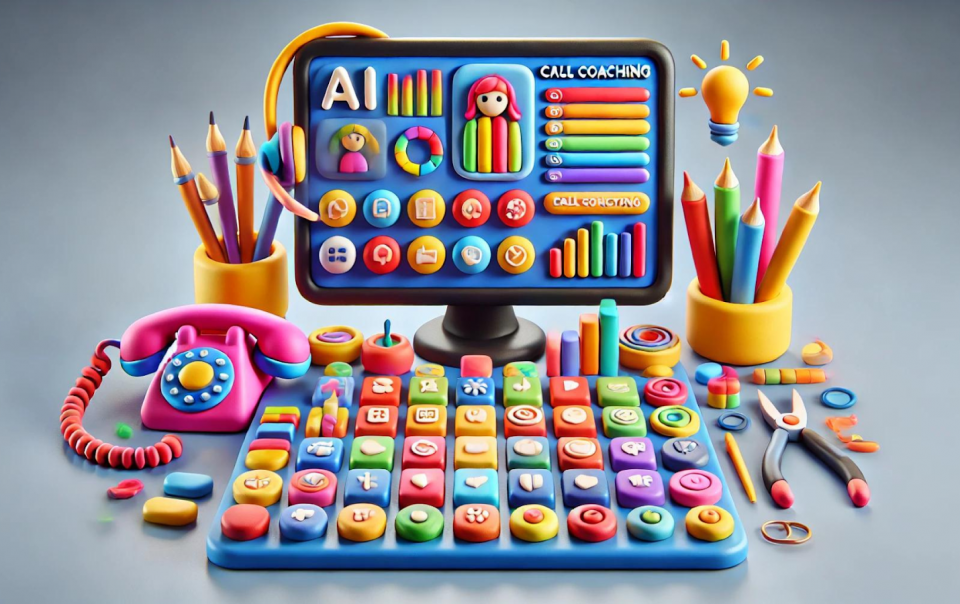Sales processes are becoming smarter, faster, and more efficient thanks to AI-powered CRM tools. These cutting-edge platforms offer sales teams more than just automation—they deliver real-time insights, predictive analytics, and enhanced customer engagement capabilities.
Whether you’re a small business or a large enterprise, AI can transform how your sales team operates, allowing you to focus on strategic decision-making and relationship-building instead of manual tasks.
In this blog, we’ll explore the definition of CRM (Customer Management System), the Role of AI in CRM and the key benefits of using AI-powered CRM tools and provide an in-depth look at five leading AI-powered CRM platforms: Salesforce Einstein, Zoho Zia, Freshsales by Freshworks, Kylas Sales CRM, and Zipteams.
What is a CRM?
A Customer Relationship Management (CRM) system is a tool that helps businesses manage interactions with their customers across various channels like sales, marketing, and customer support.
At its core, a Customer Relationship Management (CRM) stores and organises customer information, making it easier for teams to track customer journeys, manage leads, and nurture relationships. By having a centralised location for customer data, businesses can get a 360-degree view of customer interactions.
CRMs have evolved significantly, offering more than just basic customer tracking. According to a study by Grand View Research, the global CRM market is expected to grow to $157.6 billion by 2030, showcasing how essential these systems have become for businesses of all sizes.
How AI is Transforming CRM
AI is transforming Customer Relationship Management (CRM) systems by adding a layer of intelligence that helps businesses manage customer relationships more effectively. One of the most significant changes AI brings is predictive analytics, which can forecast customer needs and recommend next steps based on historical data. This means businesses can shift from reactive to proactive strategies, targeting customers at the right time with the right message.
Additionally, AI is improving CRM by simplifying data management. Modern CRMs now handle vast amounts of unstructured data from various channels like social media, emails, and customer reviews. AI tools can analyse this data in real-time, offering valuable insights that help sales teams tailor their outreach. According to IBM, AI tools in CRM can improve lead conversion rates by 20% to 30% and significantly reduce the time spent on administrative tasks like data entry.
Role of AI in CRM
AI is rapidly becoming a cornerstone in CRM systems, enhancing their functionality by offering advanced analytics, automation, and personalised customer interactions.
- AI-driven CRMs analyse massive datasets to provide predictive analytics, which help businesses anticipate customer behaviour, forecast sales trends, and make data-driven decisions.
- AI plays a vital role in automating routine tasks such as responding to customer queries, lead scoring, and data entry.
- AI-powered chatbots and virtual assistants can handle simple customer interactions, allowing sales and support teams to focus on more complex tasks
Also Read: The Ultimate Guide to AI-Powered Sales Automation in CRM
AI is not just making Customer Relationship Management (CRM) more powerful; it’s reshaping the way businesses interact with their customers, leading to more personalised, efficient, and data-driven processes. Let’s break down the key benefits AI can bring to your Customer Relationship Management (CRM).

Source: The HubSpot Blog’s AI Trends for Marketers Report
Benefits of Using AI-Powered CRM Tools for Sales
Before we explore the leading AI-powered Customer Relationship Management (CRM) platforms, let’s explore why businesses are increasingly turning to AI-powered CRMs:
1. Enhanced Lead Scoring and Prioritisation
AI-powered CRMs offer advanced lead-scoring capabilities that significantly enhance how businesses prioritise their leads. Using predictive analytics and machine learning, AI systems analyse historical data, customer interactions, and engagement patterns to assign scores to leads based on their likelihood to convert. This method ensures that sales teams focus their efforts on high-value opportunities, reducing time wasted on unqualified leads.
2. Automated Sales Processes and Customer Interactions
AI-powered CRMs revolutionise sales processes by automating routine tasks and interactions. This includes follow-up emails, scheduling meetings, and managing customer touchpoints. AI assistants embedded in CRM tools can also automate customer responses, send reminders, and suggest the next best actions, ensuring that no lead is neglected.
3. More Accurate Sales Forecasting
Sales forecasting is a critical component of any sales strategy, and AI-powered CRMs provide far more accuracy than traditional methods. AI tools analyse historical sales data, market conditions, and customer behaviour patterns to predict future revenue. With AI-driven sales forecasting, sales teams can reduce uncertainty and align their actions with expected outcomes.
4. Streamlined Workflow Automation
Workflow automation is another significant benefit of AI-powered CRMs. AI tools can automate administrative tasks like data entry, lead assignment, and CRM record updates, reducing human error and improving efficiency. Sales teams can create custom workflows that automatically trigger actions based on specific customer behaviours or sales stages.
5. Data-Driven Sales Strategies
AI-powered CRMs provide businesses with detailed analytics and insights, enabling them to craft data-driven sales strategies. These platforms collect and analyse vast amounts of customer data, offering actionable insights into buying patterns, preferences, and engagement. With AI-driven data analysis, businesses can also better understand customer pain points and market demands, allowing them to refine their product offerings and sales approaches.
Top AI-powered sales tool in CRM Platforms
With these benefits in mind, let’s explore how each of our selected platforms leverages AI to enhance CRM capabilities.
Zipteams

Zipteams stands out by providing AI-powered conversational intelligence tools specifically designed for sales teams. Its real-time lead qualification and automated meeting insights help businesses identify the best opportunities and improve sales performance. The platform is built to streamline sales communication and integrate directly with your CRM, enhancing forecasting and decision-making through data-driven insights.
Key features:
- AI-powered sales coaching for personalised sales enablement training
- Automated meeting scheduling for instant reach to leads, prospects and customers
- Conversational intelligence for automated insight to customer sentiments, lead qualifying questions, buying intent and objections
- Team performance analytics with intuitive dashboards
- Vernacular language support to All regional languages.
Strengths:
- Strong focus on automated contextual insight to customer and sales calls
- Innovative AI-driven coaching features
- Integration with popular communication tools
Limitations:
- Primarily focused on sales teams, may not be as comprehensive for other departments
Salesforce Einstein

Salesforce Einstein is a comprehensive AI tool that integrates directly into Salesforce’s CRM. It offers predictive analytics, intelligent insights, and automated recommendations. Salesforce excels in data management and custom reporting, with AI capabilities available starting from the lower-tier plans. The Einstein platform includes advanced features like Einstein Copilot, which provides generative AI capabilities to help teams make smarter decisions by suggesting the next best actions.
Key features:
- Predictive lead scoring and opportunity insights
- AI-powered chatbots for customer service
- Automated task prioritisation
- Natural language processing for sentiment analysis
Strengths:
- Robust integration with other Salesforce products
- Extensive customisation options
- Large ecosystem of third-party apps
Limitations:
- Can be complex for small businesses
- Higher price point compared to some competitors
Zoho Zia

Zoho Zia is Zoho’s built-in AI assistant that helps users automate tasks, predict sales outcomes, and analyse customer interactions. It provides useful insights through natural language queries and can be integrated into various aspects of your CRM, like customer support and sales forecasting. Zia’s AI features, such as anomaly detection and sentiment analysis, are particularly useful for enhancing data integrity and automating repetitive tasks.
Key features:
- Anomaly detection in sales trends
- Prediction of deal closure probability
- AI-powered email sentiment analysis
- Intelligent workflow automation
Strengths:
- User-friendly interface
- Affordable pricing for small to medium-sized businesses
- Strong integration with other Zoho products
Limitations:
- May lack some advanced features found in enterprise-level solutions
- Limited third-party integrations compared to Salesforce
Freshsales by Freshworks

Freshsales, part of the Freshworks suite, offers AI-powered tools to help sales teams engage with customers more efficiently. The AI tool, Freddy AI, assists in lead scoring, providing predictive insights, and sending automated follow-ups. It’s designed for companies looking for an intuitive CRM with excellent email tracking, pipeline management, and customer interaction tools.
Key features:
- AI-powered lead scoring
- Predictive contact scoring
- Deal insights and forecasting
- Freddy AI assistant for task automation
Strengths:
- Intuitive user interface
- Competitive Pricing
- Built-in phone and email
Limitations:
- Relatively newer platform compared to some competitors
- Some advanced features only available in higher-tier plans
Kylas Sales CRM

Kylas Sales CRM focuses on making advanced CRM functionalities available for SMBs and startups. Its AI-driven capabilities are centred around simplifying the sales process by offering lead scoring and automation features to help sales teams focus on the most valuable leads. Kylas offers unlimited users on all plans, making it highly scalable for businesses on a budget.
Key features:
- AI-driven sales forecasting
- Automated lead qualification
- Intelligent activity suggestions
- Performance Analytics
Strengths:
- Designed with SMBs in mind
- Affordable pricing
- Easy to set up and use
Limitations:
- May lack some advanced features for enterprise users
To better visualise how these platforms stack up against each other, let’s examine a side-by-side comparison of their key features and capabilities.
| Feature | Salesforce Einstein | Zoho Zia | Freshsales | Kylas Sales CRM | Zipteams |
| AI Capabilities | Comprehensive | Extensive | Strong | Growing | Focused on sales |
| Integration | Extensive | Good within the Zoho ecosystem | Moderate | Limited | Good for communication tools |
| Ease of Use | Complex | User-friendly | Intuitive | Easy | Straightforward |
| Pricing | High | Affordable | Competitive | Budget-friendly | Pay-as-you-go pricing |
| Customer Support | Extensive | Good | Responsive | Developing | Focused |
Conclusion
While each platform we’ve examined offers unique benefits, Zipteams stands out as a particularly innovative solution, especially for businesses focused on enhancing team collaboration and sales productivity.
Zipteams’ AI-powered sales coaching, automated meeting scheduling, and conversational intelligence features address key challenges faced by modern sales teams. Its strong focus on team collaboration, coupled with integration capabilities for popular communication tools, makes it an excellent choice for organisations looking to boost their sales performance through AI-driven insights and automation.
Ready to experience the power of AI in your sales processes? Visit Zipteams.com today to sign up for a free trial and see firsthand how AI-powered CRM tools can revolutionise your sales operations.


















